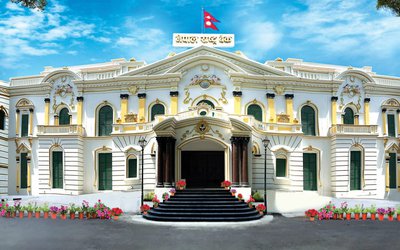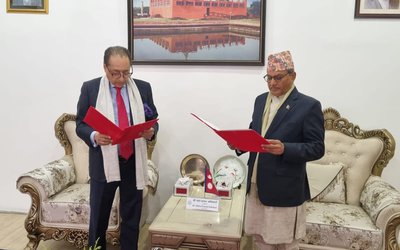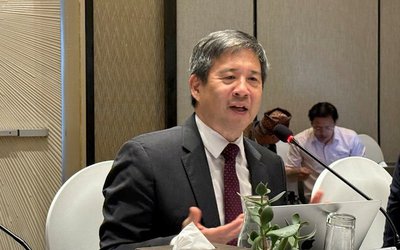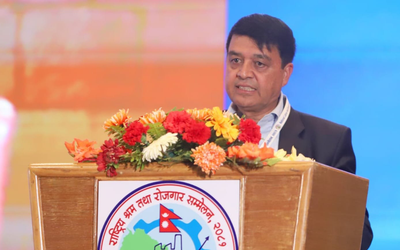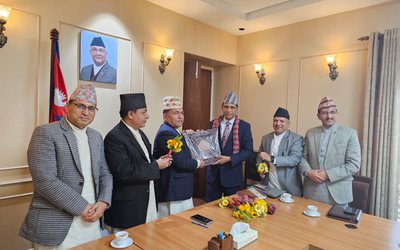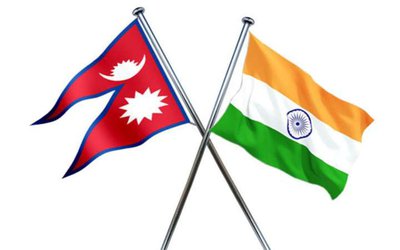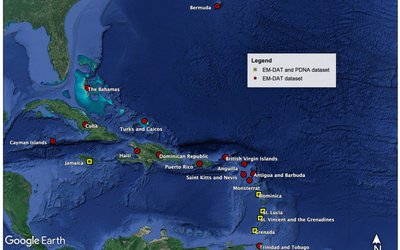
After a delay in the completion of several hydropower projects, hopes are running high that these projects will now come into operation. The recent decision of Rasuwagadi and Sanjen hydropower companies — both promoted by Nepal Electricity Authority (NEA) —to issue an initial public offering (IPO) to the public indicates positive power outlook.
At a time when demand of hydro power companies is growing in the share market, with the high reputation of Chilime, the public will most likely come to take IPOs of the companies, which are very close to the power center.
According to an announcement, Rasuwagadi Hydropower Company is going to issue 24 percent out of 49 percent of the shares allocated for the public from February 23. Depositors of Employees Provident Fund (EPF) will get 19.5 percent of the shares, as agreed during the financial closure of the 111-megawatt Rasuwagadi Hydropower Project. 3.5 percent of the shares has been allocated to the employees of the developer, NEA and its subsidiary, Chilime Hydropower Company, and one percent of it has been allocated to the employees of EPF.
Those who are registered as EPF depositors till January 4 this year can apply for 13,342,095 units of IPO between February 23 and March 14. The face value of the IPO has been fixed at Rs 100 per unit. Similarly, a total of 2,394,735 shares have been allocated to the employees of NEA and Chilime Hydropower and 684,210 units have been allocated for the employees of the EPF. These IPOs will be open from 19 to the 27th of March.
EPF depositors and employees of the developers — NEA and Chilime — can apply for 50 to 500 units per applicant. But the units of shares applied for should be divisible by 10 and employees of EPF can apply for minimum 50 units to maximum 2,500 units of shares. The application will be collected through centralised ASBA (Applications Supported by Blocked Amount) system.
Rasuwagadi Hydropower Company will issue 10 percent or 6.84 million units of shares to the locals of Rasuwa and 10.26 million units of shares to the general public following the allotment of the shares issued to the lender and employees of developers, according to the company.
Rasuwagadi Hydropower Company has 50 percent equity and 50 percent loan. The promoters have settled the payment of 51 percent of the shares so far allocated to them, worth of Rs 3.49 billion. Among the promoter shareholders, Chilime Hydropower Company owns 32.79 percent, NEA owns 18 percent, and locals of the project sites own 0.21 percent.
The project being constructed in Gosaikunda Rural Municipality of Rasuwa district is estimated to be completed at a total cost of Rs 13.68 billion. The project that was supposed to be completed in the beginning of 2020 has been delayed due to unforeseen circumstances like earthquakes and trade disruptions, among others, according to the developer. The project has achieved 60 percent physical progress so far.
Similarly, Sanjen Jalaviduyt Company is also going to issue an IPO to Rasuwagadi — 19.5 percent to depositors of EPF, 3.5 percent to the staffers on the NEA, Chilime, the District Development Committee ,Village Development Committees and one percent to the employees of EPF. Sanjen will issue 8.76 million units of shares or 24 percent of the total shares worth Rs 876 million.
The depositors registered at EPF till December 12 last year can apply for Sanjen’s IPO from the 23rd of Feb to the 14th of March and the employees of promoter companies, District Development Committee (DDC) and Village Development Committees (VDCs) can apply for IPO from 19 to the 27th of March, as per the company.
Promoters of Chilime Hydropower Company own 39.36 percent, NEA 10.36 percent and DDC and VDCs of Rasuwa own 1.28 percent share of the authorised and issued capital of the company which are Rs 3.75 billion and Rs 3.65 billion respectively.
14.8-megawatt Upper Sanjen and 42.4-megawatt Sanjen are being developed by The Sanjen Jalaviduyt Company at a total cost of Rs 2.22 billion and Rs 5.02 billion respectively.
Despite the growing risk due to some private promoters, the interest of the commoners has increased in hydropower.
- ADB’S CHIEF ECONOMIST: Nepal Reduces Poverty
- Mar 11, 2025
- FM DR. DEUBA: A Successful Visit
- Mar 11, 2025
- MD GHISING: Target Of Personal Grudge
- Mar 09, 2025
- UPPER TRISHULI-1 HYDROPOWER: Supporting Community Development
- Feb 24, 2025
- ADB POWERING NEPAL: Five Decades Of Support
- Feb 24, 2025
